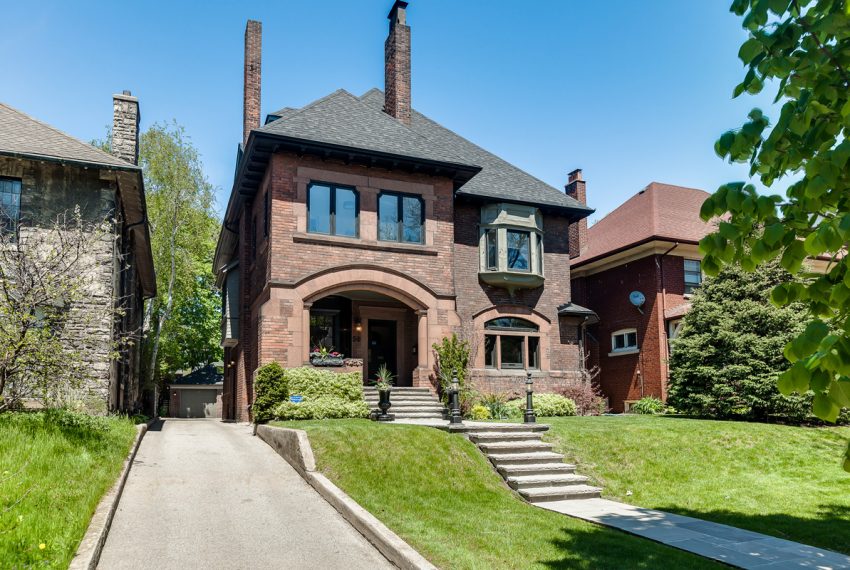
Ontario slaps 15% tax on foreign buyers, expands rent control in 16-point plan to cool housing
The Ontario government moved forward Thursday with initiates to rein in the housing market, with 16 new measures to control real estate, including a 15 per cent tax on foreign buyers and expanded rent control rules.
Called Ontario’s Fair Housing Plan, Ontario premier Kathleen Wynne said the plan has been in the works for weeks after months of consultation.
“The skyrocketing cost of renting or buying in Ontario and the Greater Golden Horseshoe in particular is the unwanted consequence of a strong economy with a promising future,” said Wynne at a press conference that also blamed speculators for rising housing prices and landlords for gouging renters. “When young people can’t afford their own apartment or can’t even imagine owning their own home, we know we have a problem.”
The Toronto Real Estate Board said this month that March prices across the region were up 33 per cent from a year ago while condo research firm Urbanation Inc. said condominium rents rose 8.3 per cent in the first quarter from a year ago.
- The 15 per cent foreign buyers’ tax won’t apply to refugees and immigrant nominees, and a rebate could be available for those who get citizenship later
- Increase in rents is capped at 2.5 per cent, with some exceptions
- Government to amend the Residential Tenancies Act to clarify text of leases and compensate evicted tenants
- Identify surplus provincially owned land that could be used to build affordable housing
- Tax vacant homes to push owners to sell unoccupied units or rent them out
Align property tax for new multi-residential apartment buildings with other residential properties - Municipalities could be allowed flexibility to use property tax as a policy tool to influence development
Effective immediately, the NRST which deals with foreign buyers will be 15 per cent on all property purchased in the Greater Golden Horseshoe, the area of south Ontario that is home to nine million Canadians.
- The 15 per cent foreign buyers’ tax won’t apply to refugees and immigrant nominees, and a rebate could be available for those who get citizenship later
- Increase in rents is capped at 2.5 per cent, with some exceptions
- Government to amend the Residential Tenancies Act to clarify text of leases and compensate evicted tenants
- Identify surplus provincially owned land that could be used to build affordable housing
- Tax vacant homes to push owners to sell unoccupied units or rent them out
Align property tax for new multi-residential apartment buildings with other residential properties - Municipalities could be allowed flexibility to use property tax as a policy tool to influence development
Effective immediately, the NRST which deals with foreign buyers will be 15 per cent on all property purchased in the Greater Golden Horseshoe, the area of south Ontario that is home to nine million Canadians.
“Ontario is a welcoming place,” said Wynne. “The non-resident speculation tax has nothing to do new Canadians and people who want to make Ontario their home. With the tax, we are targeting people who aren’t looking for a place to raise a family, they are only looking for a quick profit.”
The tax will have exemptions for skilled workers in the Ontario worker nominee program and refugees will be exempt. Anyone obtaining a permanent residency or Canadian citizenship within four years of purchasing their home would receive a full rebate of the NRST. Any international student enrolled full-time for at least two years would receive a full rebate. If you’ve worked in Ontario from the date of purchase of your home, you also get a full rebate.
The new plan will expand rent control to include buildings constructed after 1991, which previously had allowed landlords to demand whatever rent they wanted. Those buildings will be subject to regulated rate increases tied to inflation, which is currently 1.5 per cent.
“We have all heard the stories of rent gouging going on in today’s market. It’s wrong. And it is not at all fair. The argument that developers need to be able to increase rent by as much as 100 per cent or they won’t keep building rental units, just does not hold water.”
To appease landlords and developers, the government said it would align property tax rates for purpose rental apartments with rates for other residential properties. The government will also bring in a rebate program for development charges.
There are questions of how well any plan will work given the strength of the economy and the underlying cheap cost of borrowing. The Bank of Canada just this month passed on the opportunity to raise interest rates.
“Given that it’s virtually costless to borrow (after inflation), there should still be plenty of oxygen to keep this fire going, hopefully at a more contained rate,” said Doug Porter, chief economist with Bank of Montreal.
As part of the measures, the city of Toronto will have the power to impose a tax on vacant homes — something the mayor of the city lobbied for previously. Other municipalities will have the same opportunity.
“(The measure) will encourage owners to sell or rent their unoccupied units,” said Charles Sousa, the finance minister.
Municipalities will also be allowed to provide a higher tax on service land approved for development, something the government thinks will help spur housing development of vacant lots.
Ontario will also crackdown on assignment clauses, the practice which allows a buyer who hasn’t closed a purchase to pass on the right to buy a property. “There are speculators who enter into agreements to purchase property with no intention of buying them or living them, crowding out families who want to buy their own home,” said Sousa.
He believes those “scalpers” are avoiding tax “and should pay their fair share” so the government will now be demanding full disclosure, if a property has been transferred through an assignment clause.
The government wants to make sure the land transfer tax is being paid and plans on working with the Canada Revenue Agency to pass on information it gets from its crackdown on assignment clauses.
Queen’s Park also has plans to review the real estate industry, checking on practices such as double ending where a realtor represents the buyers and the seller. “We’ve heard about fake bidding so we want to modernize the rules,” said Sousa.



